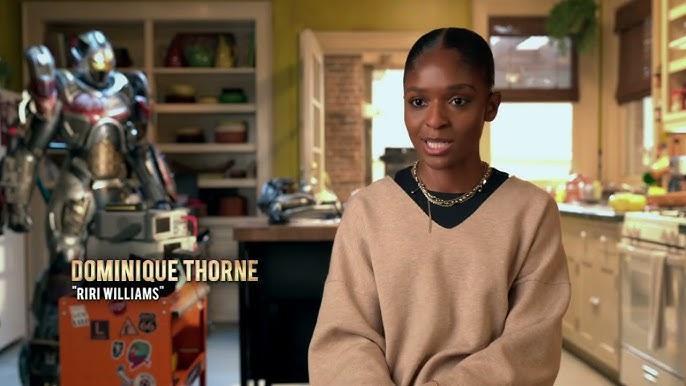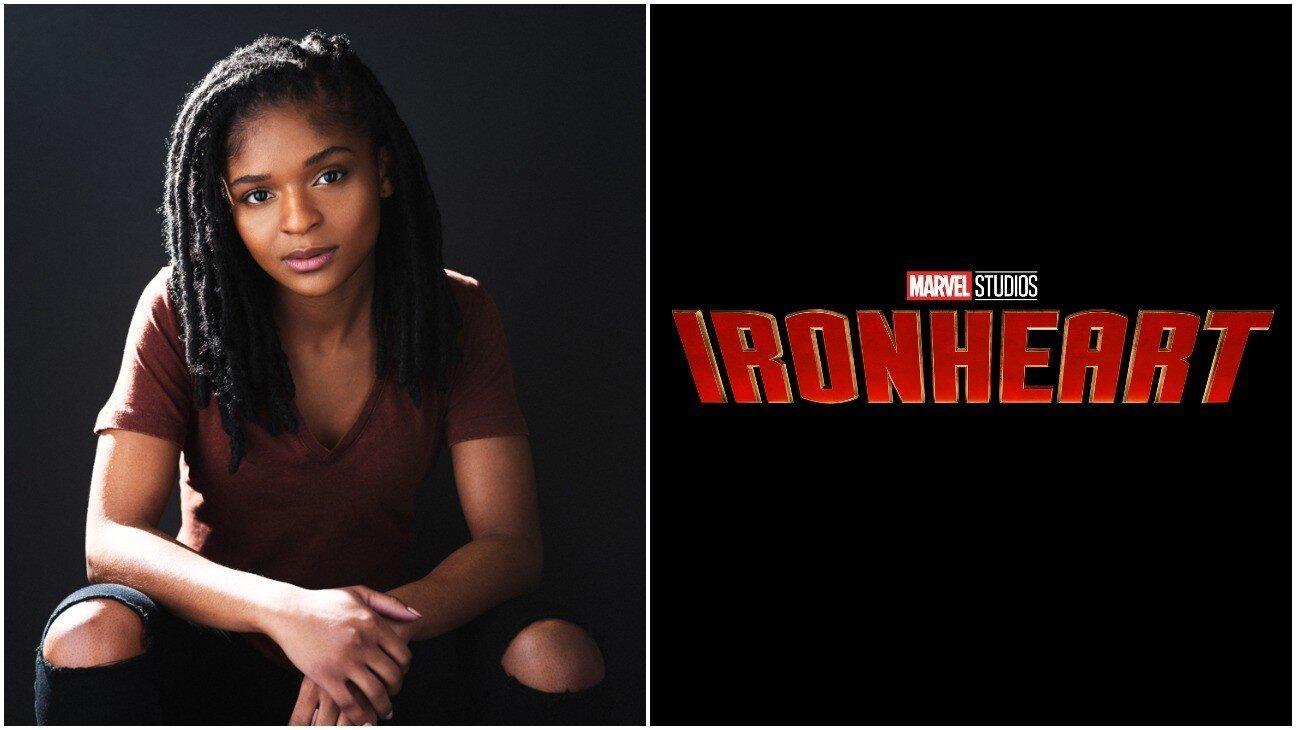Rotten Tomatoes Faces Backlash Over Alleged Deletion of Negative ‘Ironheart’ Reviews: What’s Really Going On?
Marvel’s latest Disney+ series, Ironheart, has ignited a firestorm of debate, but not for the reasons you might expect. Instead of buzz centering on Riri Williams’ high-flying journey as a genius inventor turned armored hero, the conversation has pivoted to a heated controversy involving Rotten Tomatoes. Social media platforms, particularly X, have been abuzz with claims that the review aggregator deliberately removed negative audience reviews to inflate the show’s score. With accusations of bias and manipulation swirling, the situation raises questions about the integrity of online review platforms and the challenges of navigating polarized fan reactions in the age of social media. Let’s dive into the heart of this controversy and uncover what’s really happening.

Ironheart premiered on Disney+ on June 24, 2025, introducing Dominique Thorne as Riri Williams, a brilliant MIT student crafting a suit of armor to rival Tony Stark’s. The series, blending tech wizardry with themes of grief and identity, arrived with high expectations as a spiritual successor to Iron Man. Yet, even before its first three episodes dropped, the show’s Rotten Tomatoes audience score plummeted to a shocking 32%. This was particularly puzzling since only press members had early access, meaning the general public hadn’t yet seen the series. The low score sparked immediate suspicion of review bombing, a tactic where users flood platforms with negative ratings, often driven by personal biases rather than genuine critique.
The phenomenon isn’t new for Marvel projects. Shows like Ms. Marvel, She-Hulk: Attorney at Law, and The Acolyte have faced similar campaigns, often targeting series with diverse leads or progressive themes. Ironheart, centered on a young Black woman, appeared to follow this pattern. Posts on X amplified the narrative, with users pointing to the suspiciously low pre-release scores as evidence of coordinated attacks. One user noted that the show’s YouTube trailers racked up hundreds of thousands of dislikes, with ratios as high as 64% negative feedback, suggesting a broader backlash against the series’ very existence.

However, the plot thickened when Ironheart’s audience score on Rotten Tomatoes suddenly surged from 32% to 69% within days of its premiere, closely aligning with its 70% critics’ score. This dramatic shift fueled accusations that Rotten Tomatoes had “nuked” negative reviews to prop up the show’s rating. Screenshots shared on X, including one from the account DramaAlert, showed the Popcornmeter score jumping from 32% to 71% almost overnight. Critics of the platform, including some on Reddit’s r/marvelstudios, speculated that Rotten Tomatoes, owned by Comcast (75%) and Warner Bros. (25%), was manipulating scores to favor Disney, Marvel’s parent company. The claim gained traction, with some pointing to a 2019 incident where Rotten Tomatoes admitted to deleting 50,000 reviews for Captain Marvel due to a “bug” in their system.
But is there evidence to support these allegations? Rotten Tomatoes has not publicly confirmed deleting reviews for Ironheart, though they’ve acknowledged taking steps to remove “unfair noise” from pre-release audience scores. This aligns with their response to the Captain Marvel controversy, where they adjusted their system to prioritize post-release ratings. In Ironheart’s case, the timing of the score increase suggests that reviews submitted before the show’s debut—likely from users who hadn’t watched it—were filtered out. As genuine fans began posting after the premiere, the audience score rose, reflecting a more balanced reception. By July 5, 2025, the series held a Certified Fresh rating of 86% from 90 critic reviews, while the audience score settled at 53%, still lagging behind but improved from its initial low.

The controversy highlights a broader issue plaguing review platforms: the tension between authentic feedback and orchestrated campaigns. Review bombing has become a recurring challenge for Disney+ shows, particularly those featuring women or people of color as leads. The Acolyte, Ms. Marvel, and She-Hulk all faced similar pre-release downvotes, often tied to cultural or ideological objections rather than the shows’ quality. For Ironheart, some fans argue the early negative scores were less about the series itself and more about resistance to its representation of a Black female hero. On platforms like Criticless, where audience scores are unfiltered, Ironheart’s rating sits at a dismal 11%, suggesting a segment of viewers remains deeply dissatisfied.
Yet, the series isn’t without its defenders. Critics have largely praised Dominique Thorne’s charismatic performance and the show’s grounded exploration of Riri’s Chicago roots. Reviews highlight the emotional depth of her friendship with Natalie, a character who adds an uncanny yet compelling dynamic. Some call Ironheart a refreshing addition to the MCU, with a finale that promises to reshape the franchise’s future. Fans on Reddit and X have echoed this, with one user describing the series as a “fun watch” and rating it a 7.5/10, while others expressed frustration that review bombing overshadows genuine discussion. The show’s defenders argue that its flaws—uneven pacing and reliance on Marvel tropes—are outweighed by its heart and ambition.
The disparity between critic and audience scores isn’t unique to Ironheart. Other MCU shows like Secret Invasion (53%) and Echo (70%) have also landed in the lower tier of Rotten Tomatoes rankings. Ironheart’s current 86% critic score places it above these but below fan-favorites like Ms. Marvel (98%). On IMDb, however, Ironheart struggles with a 4.3 rating, the lowest among MCU shows, though some argue this reflects the same review-bombing tactics seen elsewhere. The polarized reception underscores a growing divide in how fans and critics engage with Marvel’s output, particularly as the MCU grapples with “superhero fatigue” post-Avengers: Endgame.

So, did Rotten Tomatoes manipulate Ironheart’s score? The evidence is inconclusive. The platform’s history of addressing review bombing suggests they likely removed pre-release ratings to curb bad-faith attacks, a move that aligns with their stated policies. However, the lack of transparency fuels skepticism, especially when the score jumps so dramatically. Critics of the platform argue that its corporate ties to major studios create a conflict of interest, while supporters point out that filtering out review bombs is a necessary step to maintain credibility. Either way, the controversy has shifted focus from Riri Williams’ story to the murky mechanics of online ratings.
For fans, the real question is whether Ironheart lives up to its promise. The series’ final three episodes, released on July 1, 2025, have sparked buzz about potential game-changers, including rumors of Mephisto’s long-awaited MCU debut. If true, this could elevate Ironheart’s standing and draw back skeptical viewers. For now, the show remains a lightning rod for debate, caught between those who see it as a bold new chapter and those who view it as another misstep in Marvel’s sprawling saga. As the dust settles, one thing is clear: in the age of social media, a show’s fate is often decided before its first frame hits the screen.
Ironheart is streaming now on Disney+, inviting viewers to form their own opinions. Whether you’re drawn to Riri’s inventive spirit or wary of the hype, the series offers a chance to cut through the noise and discover a story that’s undeniably human, even beneath its high-tech armor. Will it soar like Iron Man or stumble under the weight of expectations? The answer lies in watching—and deciding for yourself.





